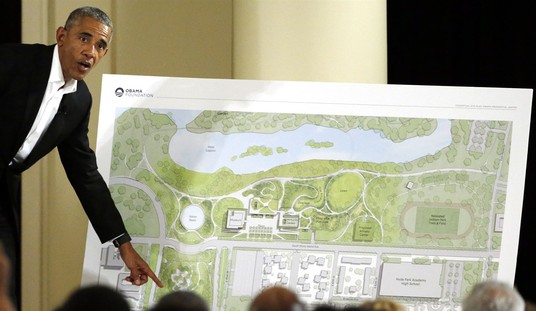Osama bin Laden and his al-Qaeda cohorts, once viewed as the Paris Hiltons of the radical Islamic movement, are finding themselves increasingly lonely. In high school terms, they are more comparable to the acoustic guitar-wielding emo teen that listens to Dashboard Confessional than the popular cheerleader who dates the quarterback. While the terrorist organization is still a potent threat capable of enormous harm, bin Laden’s collapse in popularity is a silent victory in the war on terrorism that the media has missed because of its anticlimactic storyline.
Bin Laden once was looked highly upon by very large parts of the Muslim world. Nearly 50% of Saudis viewed him favorably in June 2004, a month after al-Qaeda launched attacks in Riyadh, prompting the royal family to belatedly join the battle against the terrorist organization. If almost half of the Saudi population supported bin Laden after his group attacked their country, then the thought of how many Saudis supported him prior to the event is truly frightening.
Today only 10% of Saudis support al-Qaeda and only 15% have a favorable view of bin Laden. More Saudis had unfavorable opinions of Hamas and Hezbollah than favorable as well, according to the poll. The news coverage of fellow Muslims being slaughtered en masse by al-Qaeda and other terrorist groups is causing major defections from the ideology of radical Islam.
Another part of the reason for al-Qaeda’s losses in the political war is that the Muslim world has seen what rule by radical Islam means. In Iraq, the Sunni population that harbored al-Qaeda operatives ultimately turned against them and allied with the U.S. and the Iraqi government after being exposed to al-Qaeda’s rule. Today, the Sunnis of Iraq are far better off and the Muslim world is realizing that the promises of a better life through Islamic puritan rule are empty. The dynamic is similar in Afghanistan, where only four percent of the population, which has lived under strict Islamic law, desire for the Taliban to return to power. To live under radical Islam is to hate radical Islam.
While Allah’s will is ambiguous and debated among Muslims, it is becoming clearer and clearer to all Muslims, both moderates and extremists, that Allah’s will is not with al-Qaeda.
Sayyid Imam al-Sharif, also known as Dr. Fadl, one of the top spiritual leaders of al-Qaeda and similar groups, has seen the writing on the wall and has jumped ship. He is viciously condemning al-Qaeda, Osama bin Laden, and especially his former BFF Ayman al-Zawahiri. Breakups are never easy, and this one is no exception.
Al-Sharif even makes this gut punch of a statement: “Every drop of blood that was shed or is being shed in Afghanistan and Iraq is the responsibility of bin Laden and Zawahiri and their followers.” Al-Sharif further condemns Muslims who move to the West, taking advantage of its accommodating ways only to “betray them, through killing and destruction.”
He has claimed that Ayman al-Zawahiri was once a hired agent of the Sudanese government, tasked with carrying out ten terrorist attacks against Egypt, and has branded Zawahiri as a serial liar about this and other issues. Al-Sharif’s condemnation of Zawahiri is particularly significant, as he was one of Zawahiri’s mentors as he climbed into the terrorist hall of fame.
Zawahiri has responded to al-Sharif’s criticisms and attributed them to being tortured in the Egyptian jail where he currently resides, but al-Sharif is widely viewed as a theological expert among the jihadist community. The degree of al-Sharif’s leadership role in Egyptian Islamic Jihad, Zawahiri’s original place of employment before the group joined with bin Laden’s forces, is contested, but there is no doubt that his street cred far surpasses that of Zawahiri.
According to the Middle East Media Research Institute’s analysis, al-Sharif’s new book says that Allah allows Muslims to be defeated when they are disobedient. Al-Sharif indirectly ties al-Qaeda’s inability to defeat the non-Muslim militaries to God’s disapproval of them. He also says that the Muslim world’s misery is its own doing and not to be attributed to the U.S. or even Israel.
“Allah, may He be praised, says that the Muslims’ misfortunes are because of themselves, and bin Laden and al-Zawahiri say they are because of America. Let the Muslims consider who they are going to follow: Allah, or bin Laden and al-Zawahiri?” he writes. He further says that al-Qaeda has caused more Muslim refugees and casualties than the United States or even Israel.
This doesn’t mean al-Sharif is a moderate, peace-loving Muslim. He simply argues that violent jihad should be temporarily suspended because the conditions are not favorable and that al-Qaeda’s methods, such as targeting civilians, are un-Islamic. His bold attack on al-Qaeda, though, highlights the depth of rejection al-Qaeda is feeling from the Muslim population, even those among the extremist community.
Al-Qaeda has done the United States a favor by convincing the Muslim masses that their activity is un-Islamic, and those who follow bin Laden cannot count upon the divine intervention of an approving God to help them defeat the Western imperialists and Muslim apostates.
Al-Qaeda’s fall from grace and rejection by their fellow radical Muslims provides us with an early glimpse as to how the war on terror may ultimately end. Radical Islam will suffer a death by a thousand divisions, breaking and dissolving into countless pieces due to the intolerance and extremism that define them.
Sure, radical Sunnis and Shiites cooperate against common enemies, but their alliance cannot be permanent. Each defeat they suffer will cause a blame game as to who violated Allah’s will, and their demoralized followers will question whose side God is really on. In the end, it will be radical Islam’s own uncompromising nature that will cause it to inadvertently commit suicide.









Join the conversation as a VIP Member